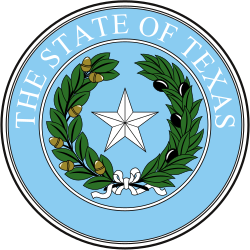Campaign
Morales, who never ran for statewide office before, pulled a major upset in the primary by defeating three politicians: U.S. Congressman John Wiley Bryant, U.S. Congressman Jim Chapman, and former State Supreme Court litigator John Odam. In the March run-off, he defeated Bryant with 51% of the vote. He became the first minority in Texas history to become a United States Senate nominee from either major party. Despite having no staff, raising only $15,000, and not accepting any special interest money he obtained 2.5 million votes. [1] [2]
Gramm previously ran for President earlier in the year, but lost to fellow U.S. Senator Bob Dole in the Republican presidential primary. Gramm was the heavy favorite. A September poll showed Gramm leading 50% to 40%. A late October poll showed him leading with 53% to 31%. [3]
Exit Polls showed that Gramm performed well with Anglos (68% to 31%), while Morales won African Americans (79% to 19%) and Latinos (79% to 20%) respectively.
This page is based on this
Wikipedia article Text is available under the
CC BY-SA 4.0 license; additional terms may apply.
Images, videos and audio are available under their respective licenses.



